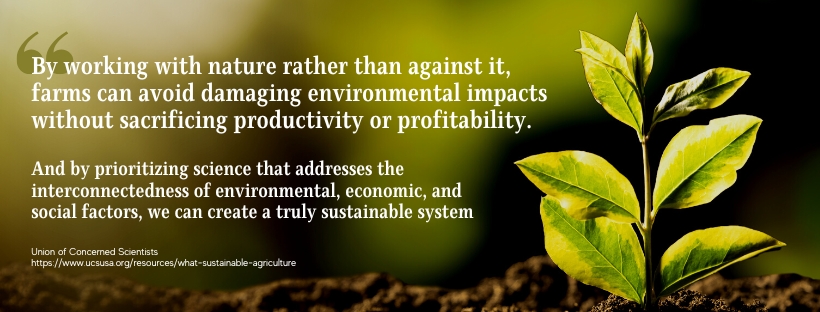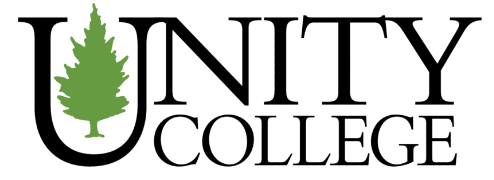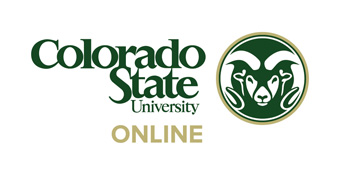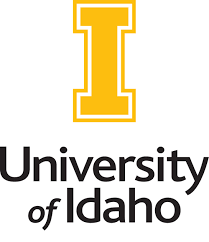According to the United Nations, the world is expected to see a significant increase in population by 2050. The study stated that the projected world population would be 9.6 billion. In return, this means that food production will increase by up to 70% to meet the nutritional demands of the estimated future population.

It is becoming increasingly clear that significant reforms in the agricultural sector are necessary to ensure that the food system is prepared to handle the difficulties posed by a growing global population. In particular, we must switch to sustainable food and farming from the traditional industrial food system that has dominated food production for centuries.
An agricultural education focusing on sustainable food and farming is one of the best ways to gain knowledge on how to preserve our natural resources while maintaining income from an agricultural business. We have included on-campus and online degree programs to broaden your school search.
Page Jumps!
Additional Resource: THE BEST ONLINE SCHOOLS FOR BACHELOR’S IN ENVIRONMENTAL SCIENCES
Methodology
This list of bachelor’s degrees in sustainable food and farming was carefully researched using strict guidelines so that students get a high-quality education. The criteria for this particular catalog included the following:
- A fully online program or an on-campus degree that gives students flexibility in course selection and pacing or offers some online courses,
- Competitive online education,
- Bachelor’s in agriculture degree with a focus on sustainability,
- Ranked highly in other reputable resources,
- Offer financial aid and student support services,
- Taught by experts with years of sustainable agriculture experience.
Get the details on our online bachelor’s rankings by visiting our Methodology page.
Best Online Bachelor’s in Sustainable Food and Farming
University of Massachusetts Amherst

Online Bachelor of Science (BS) in Sustainable Food and Farming
Program Standouts:
UMass Amherst offers several online programs, including Sustainable Food and Farming. This is a 100% online degree program with no required on-campus visits.
The curriculum of this online bachelor’s degree is designed to help prospective students gain knowledge about how to implement sustainable agriculture and farm management. Topics focus on the food and animal systems, entire farm production and commercialization, agricultural education, community development, public policy, and more.
Online students have an optional experiential learning opportunity. The internship will help students gain more practical knowledge about sustainable farming and agricultural science.
Coursework Sample:
- Herbs, Spices, and Medicinal Plants
- Intro to Food and Agriculture Law
- Cultivation of Edible Mushrooms
Campus Location: Amherst, MA
Accreditation:
- New England Commission of Higher Education
Acceptance Rate: 65.5%
Retention Rate: 91%
Graduation Rate: 84%
Learn more about the University of Massachusetts Amherst’s Bachelor’s in Sustainable Food and Farming.
Did You Know?
International students interested are not required to have a VISA to qualify for admission. However, international students who want to visit the campus for experiential learning are suggested to apply for a visitor’s visa rather than a student visa.
Arizona State University

Online Bachelor of Science (BS) in Sustainable Food Systems
Program Standouts:
The online BS degree in Sustainable Food Systems at ASU is one of the rarest online degrees in sustainable agriculture. Thanks to its online format, students can study at their own pace and continue with their current lives.
The program has a curriculum that studies the current landscape of the food systems, how it’s evolving, and ways to improve them. Students will focus on determining, evaluating, and establishing procedures and policies to contribute to economic development, food equity, sustainable agriculture, and security of supply.
Moreover, students can tailor their curriculum and focus on their interests that align with their future professional and educational goals.
Coursework Sample:
- Sustainable Ecosystems
- Equity, Justice, and Sustainability
- Systems, Dynamics, and Sustainability
Campus Location: Tempe, AZ
Accreditation:
- Higher Learning Commission
Acceptance Rate: 88.2%
Retention Rate: 86.2%
Graduation Rate: 66.9%
Learn more about Arizona State University’s BS in Sustainable Food Systems.
Did You Know?
Students in the online sustainable food systems program enroll in accelerated classes. The average week per class is 17; ASU’s week per class is 7.5. This allows students to graduate and compete in the job market faster.
Unity College

Online Bachelor of Science (BS) in Sustainable Business Management: Sustainable Food and Farming
Program Standouts:
Unity College’s 100% online bachelor in sustainable business management has four concentration courses: Adventure Ecotourism, Hemp Industry and Science, Renewable Energy, and Sustainable Food and Farming.
The sustainable food and farming concentration was designed with working adult students in mind. Online students gain the opportunity to learn about running a sustainable business in various sectors from the school’s world-class faculty and trained staff.
In addition to learning skills in sustainable farming, students will develop various business skills that can be applied to other sectors that want to run a more sustainable business.
Coursework Sample:
- Farm to Table: Exploring Food Productions Systems
- Sustainable Farm Management
- Sustainable Agriculture for Small Farms
Campus Location: New Gloucester, ME
Accreditation:
- New England Commission of Higher Education
Acceptance Rate: 91.4%
Retention Rate: 71.0%
Graduation Rate: 66.7%
Learn more about Unity College’s BS in Sustainable Business Management: Sustainable Food and Farming.
Did You Know?
Students at Unity College are given various opportunities to create a professional network. Additionally, students can look forward to having assistance with job placements upon graduation.
Colorado State University

Online Bachelor of Science (BS) in Horticulture
Program Standouts:
Students who want a broad understanding of environmental science can choose to enroll at CSU’s online BS in Horticulture. This degree program is comparable to sustainable food and farming programs since it teaches students how to practice controlled environmental agriculture.
In addition to controlled environment agriculture knowledge, students will explore courses about plant identification, pest management, and plant cultivation. Students will also encounter courses that will help them gain more agribusiness management knowledge and skills. Finance, law, marketing, and economics courses aim to develop one’s business skills.
Students learn from a distinguished faculty and can connect with them one-on-one on a personal but professional level. Students will gain in-depth knowledge from researchers and practitioners about various facets of horticulture.
Coursework Sample:
- Agricultural and Resource Economics
- Statistics With Business Applications
- Greenhouse Management
- Horticulture Crop Production and Management
Campus Location: Fort Collins, CO
Accreditation:
- Higher Learning Commission
Acceptance Rate: 89.6%
Retention Rate: 83.0%
Graduation Rate: 71.9%
Learn more about Colorado State University’s Bachelor’s in Horticulture.
Did You Know?
Students can further tailor their degree program by choosing their own minors. They can minor in Business Administration, Agricultural Business, Global and Environmental Sustainability, Political Science, Gerontology, Anthropology, Media Studies, Economics, and Sociology.
Texas A&M University

On-campus Bachelor of Science (BS) in Sustainable Agriculture and Food Systems
Program Standouts:
Students seeking a hands-on approach to learning can enroll at TAMU’s traditional BS in Sustainable Agriculture and Food Systems. No thesis is required to complete the degree.
Students enroll in various courses that teach them how to maintain efficiency in the food system, improve the planet, and feed a population. Students work with people, plants, and animals and engage with experienced experts in the agriculture and environment sectors.
Students can tailor their own program and choose a monitor. While students can choose minors as they please, the school suggests that they enroll in at least one of the following minor courses:
- Agribusiness
- Agricultural Education
- Agronomy
- Horticulture
- Food Studies
- Family and Consumer Science
Coursework Sample:
- Professional Agricultural Communications
- Natural Resources Management
- Livestock Management Techniques
Campus Location: Dallas, TX
Accreditation:
- Southern Association of Colleges and Schools Commission on Colleges
Acceptance Rate: 64.3%
Retention Rate: 92.0%
Graduation Rate: 81.6%
Learn more about TAMU’s BS in Sustainable Agriculture and Food Systems.
Did You Know?
TAMU is the cream of the crop in Texas regarding agriculture and horticulture learning. Students receive education in and out of the classroom. The campus offers experiential learning, allowing students to work in wildlife and livestock herds.
Sterling College

On-campus Bachelor of Arts (BA) Sustainable Agriculture and Food Systems
Program Standouts:
Sterling College’s on-campus BA in Sustainable Agriculture and Food Systems is designed for students who want to learn in a traditional learning environment. Students complete immersion in SC’s own food system operations in the campus’s kitchens, working landscapes, and satellite farms.
Students can create a curriculum geared toward their goals. They can choose one of the following concentrations:
- Agroecology
- Integrated Production Systems
- Food, Farming, & Society
- Wendell Berry Farming Program Concentration
Students participate in field trips and intensive coursework that will allow them to interact with some of the state’s most renowned farmers, food producers, processors, and culinary culture. This pushes them towards the greater end of sustainable agriculture. Through this coursework, students will also receive lots of hands-on internship opportunities in the state’s and region’s agriculture and food systems.
Coursework Sample:
- Fieldschool in Sustainable Agriculture & Food Systems
- Landscape, Food & Culture
- Holistic Livestock Husbandry
Campus Location: Sterling, KS
Accreditation:
- New England Commission of Higher Education
Acceptance Rate: 47.4%
Retention Rate: 50.0%
Graduation Rate: 50.1%
Learn more about Sterling College’s BA in Sustainable Agriculture and Food Systems.
Did You Know?
In addition to concentration courses, students can also enroll in special classes in the summer to learn more about food crafts. Some lessons you’ll explore include grazing systems, bread making, fermentation, cheesemaking, harvest preservation, and wildcrafting.
University of Idaho

On-campus Bachelor of Science (BS) in Sustainable Food Systems
Program Standouts:
The University of Idaho’s BS in Sustainable Food Systems is best for students with a strong science background who participated in 4-H activities and are working on a farm. The program offers various hands-on learning experiences, including independent study, study abroad, and faculty research assistantships.
The program aims to provide students with interdisciplinary skills and knowledge of food systems to handle issues like sustainable intensification, supply chain resilience, and consumer behavior.
Students focus on courses investigating the best ways to grow food while preserving natural resources. Throughout the course, students will learn about innovative production methods, how legislation affects food availability, sustainable production, food chemistry, and safety.
Coursework Sample:
- Farm & Agribusiness Management
- Computer Applications in Biophysical Systems
- Politics of the Environment
Campus Location: Moscow, ID
Accreditation:
- Northwest Commission on Colleges and Universities
Acceptance Rate: 81.4%
Retention Rate: 81.0%
Graduation Rate: 59.5%
Learn more about the University of Idaho’s BS in Sustainable Food Systems.
Did You Know?
Students interning at the Soil Stewards Student will learn the fundamentals of producing sustainable, small-acreage market gardens. Students working on the farm gain practical experience and learn how to manage using scientific information to maintain the Soil Stewards Farm.
University of California

On-campus Environmental Studies (BA) with Agroecology and Sustainable Agriculture focus
Program Standouts:
The University of California -Santa Cruz delivers a traditional BA in Environmental Science program that allows students to focus their studies on Agroecology and Sustainable Agriculture.
The focus allows students to investigate, maintain, and develop sustainable agricultural systems. This aims to preserve agrarian productivity and contribute to social good, environmentally sound, and economically stable food systems.
It is strongly advised that students perform at least one internship in agroecology, sustainable agriculture, or sustainable food systems in addition to the specified coursework.
Coursework Sample:
- Agroecology and Sustainable Agriculture
- Principles of Sustainable Agriculture
- Sustainable Development: Economy, Policy, and Environment
Campus Location: Santa Cruz, CA
Accreditation:
- WASC Senior College and University Commission
Acceptance Rate: 10.8%
Retention Rate: 89%
Graduation Rate: 74%
Learn more about the University of California’s BA in Environmental Studies: Agroecology and Sustainable Agriculture focus.
Did You Know?
Students will be required to take up to three relevant courses from among ENVS course electives and supplementary courses in other departments. This will allow them to understand one or two subareas better.
The University of Texas Rio Grande Valley

On-campus Bachelor of Science (BS) in Sustainable Agriculture and Food Systems
Program Standouts:
UTRGV’s traditional BS in Sustainable Agriculture and Food Systems is designed for students who want to attend on-campus courses to develop an enhanced knowledge of contemporary food and agricultural systems.
Students can choose one of four tracks:
- Agriculture and Ecology
- Food and Health
- Food and Society
- Business and Policy
Regardless of the chosen track, graduates will obtain the knowledge, abilities, and experiences to succeed in agriculture and food systems careers. Some of program graduates’ most common career paths include agricultural production, food system management, and rural and urban community services.
Coursework Sample:
- Food and Culture
- Sustainable Agriculture
- Global Change Ecology
Campus Location: Dr. Edinburg, TX
Accreditation:
- Southern Association of Colleges and Schools Commission on Colleges
Acceptance Rate: 93.9%
Retention Rate: 72%
Graduation Rate: 55%
Learn more about UTGV’s BS in Sustainable Agriculture and Food Systems.
Did You Know?
Students in the program can create their own schedule and course sequencing. Each student will receive an academic advisor to help them plan their unique curriculum.
University of Montana

On-campus Bachelor of Arts (BA) in Environmental Studies in Sustainable Studies.
Program Standouts:
The on-campus BA in Environmental Studies at the University of Montana offers six focus areas, including Sustainability Studies. This focus area allows students to study Sustainable Food and Farming courses.
The focus area aims to equip students with the necessary information and tools to evaluate the food and agriculture system critically. The courses will help students contribute significantly to creating a resilient, sustainable future, frequently in a local context.
Students will learn how to live more simply but joyfully while using fewer resources and how to reduce our demands on the planet.
Coursework Sample:
- Practicum in Sustainable Agriculture Education
- Medicinal Plants
- Food and Culture Anthropology
Campus Location: Missoula, MT
Accreditation:
- Northwest Commission on Colleges and Universities
Acceptance Rate: 82.1%
Retention Rate: 68.0%
Graduation Rate: 44.1%
Learn more about the University of Montana’s BA in Environmental Studies in Sustainable Studies.
Did You Know?
Students must complete six internship courses to graduate. The school will give you many internship opportunities in which you can choose to participate.
A CRASH COURSE IN MICROBIOLOGY
Frequently Asked Questions
How many years does earning a Bachelor’s in Sustainable Food and Farming take?
The length of online and on-campus bachelor’s in sustainable food and farming depends on factors like required coursework, degree requirements, and pacing. However, 120-credit hour degree programs usually take four years to complete.
Is an Agriculture degree a good choice?
Yes. Earning a bachelor’s in agriculture is a good choice. It offers numerous career options, including those in farming, research, and other fields of science.
What are the most common requirements for Bachelor’s degrees in Agriculture?
Like other degree programs, an undergraduate degree in agriculture requires an applicant to have a high school diploma and submit their SAT or ACT scores. Other programs, however, need students to have work experience on farms. While others have a minimum GPA required, others have no cut-off.
Students with previously earned college degrees are required to submit all official transcripts.
Don’t go! Check this out: THE BEST ONLINE SCHOOLS FOR BACHELOR’S IN PROJECT MANAGEMENT
